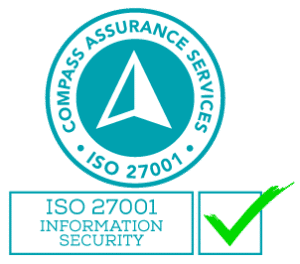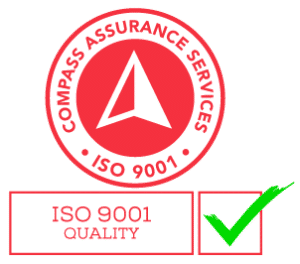In 2024, several key trends are set to cultivate the direction that modern managed IT service providers (MSPs) will take their service offerings. With a need for real-time insights, protection against malicious cyber threats, and specialised digital tools, businesses need to seek out MSPs that have the up-to-date knowledge and expertise to support their needs.
Understanding the latest trends is essential for businesses to maintain efficiency, security, and competitive advantage as they plot their strategies and goals for 2024.
This article will explore five pivotal trends reshaping modern managed IT services, delving into the intricacies of each and their implications for businesses navigating the digital age.
1. Advanced Cyber Security Solutions
Phishing scams, ransomware attacks, zero day threats – cyber-attacks on the horizon are set to grow more insidious and sophisticated. It only makes sense that cyber security capabilities must grow to keep up.
AI and Machine Learning (ML) are increasingly being integrated into security solutions, enabling predictive analytics that can identify potential threats before they materialise. This shift towards a more proactive, rather than reactive, stance in cyber security aims to preempt attacks and minimise vulnerabilities.
The adoption of advanced cyber security strategies ensures business continuity by mitigating the risk of disruptive cyber incidents. It also streamlines compliance with regulatory standards, as advanced security measures are designed to meet or exceed industry requirements.
Key cyber security in 2024:
- Endpoint Detection and Response (EDR): Utilising advanced analytics to monitor and respond to threats at the device level, ensuring real-time protection against complex malware and cyber-attacks.
- Security Information and Event Management (SIEM): Integrating SIEM solutions to offer real-time analysis of security alerts generated by applications and network hardware, enhancing threat detection and response capabilities.
- Next-Generation Firewalls (NGFWs): Deploying NGFWs with capabilities beyond traditional firewalls, such as application awareness and control, integrated intrusion prevention, and cloud-delivered threat intelligence.
- Cloud Access Security Brokers (CASBs): Implementing CASBs to provide visibility into cloud application usage, data protection, and governance across cloud services, ensuring secure cloud adoption.
- Advanced Threat Protection (ATP): Utilising ATP services to defend against sophisticated malware or hacking-based attacks targeting sensitive data, including proactive defence mechanisms like sandboxing.
- Zero Trust Model: Adopting a Zero Trust framework that requires strict identity verification for every person and device trying to access resources on a private network, regardless of whether they are sitting within or outside of the network perimeter.
2. Seamless Integration Between Business Applications
Modern businesses generally use a diverse array of specialised applications, each catering to specific operational needs. For example, financial professionals might use accounting and bookkeeping software, while architectural firms would utilise Building Information Modelling (BIM) tools and digital drawing tools.
The true potential of these applications is only realised when they can communicate and work together harmoniously. Integration facilitates this by breaking down silos, enabling data exchange and automating workflows, which in turn, drives productivity and innovation.
The evolution of integration technologies has been remarkable, with Application Programming Interfaces (APIs) leading the charge. APIs serve as the glue that binds different applications, allowing them to interact and share data effortlessly.
Effectively integrating business applications enhances operational efficiency by automating routine tasks, and provides decision-makers with a holistic view of business performance through unified data analytics.
3. IoT Device Management and Support
As the Internet of Things (IoT) continues to expand its footprint across various sectors, this trend addresses the complexities involved in deploying, securing, and optimising the vast array of connected devices that businesses now rely on.
IoT devices enable unprecedented levels of data collection and automation. However, this expansion also introduces challenges in managing the performance, security, and connectivity.
To tackle the intricacies of IoT ecosystems, MSPs are employing advanced strategies that encompass edge computing for processing data closer to the source, thereby reducing latency. Security is another focal point, with heightened measures being implemented to protect IoT devices from vulnerabilities.
Additionally, comprehensive IoT management platforms offer tools for monitoring, maintenance, and analytics, ensuring that IoT deployments deliver their intended benefits.
This management of IoT devices has far-reaching implications for businesses. It not only ensures the reliability and security of IoT deployments – it unlocks the potential for data-driven insights, which can lead to more informed decision-making and innovation.
Business IoT devices:
- Wireless Printers: Facilitating remote printing and document management.
- Voice Assistants: For hands-free control and efficient scheduling or reminders.
- Energy Management Devices: Includes smart metres and IoT-connected power outlets to monitor and optimise electricity usage.
- Fleet Management Systems: Installed in vehicles to monitor location, fuel consumption, and driver behaviour, improving logistics and reducing costs.
- Smart Locks and Access Control Systems: Enhancing security by controlling who can access certain areas within a business premises, often managed remotely via mobile applications.
- Environmental Sensors: Monitoring air quality, temperature, humidity, and other environmental factors critical for maintaining optimal conditions in workplaces or production areas.
4. Manage Complex IT Environments with AIOps
The intricate web of modern IT systems, with their diverse applications and sprawling networks, presents a formidable challenge for traditional management approaches. Artificial Intelligence IT Operations (AIOps) uses AI to sift through vast streams of data, identifying patterns and predicting potential issues within IT environments before they escalate into significant problems.
By harnessing ML algorithms, IT operations are transformed from reactive troubleshooting exercises into reliable stability and optimal performance levels. This shift enhances the resilience of IT systems and frees up human resources to focus on strategic initiatives.
Key AIOps capabilities:
- Anomaly Detection: Identifying unusual behaviour in IT systems that could indicate a problem, often before the issue impacts users or services.
- Event Correlation and Analysis: Aggregating and analysing data from various sources to identify the root causes of issues, reducing the time it takes to resolve them.
- Predictive Analysis: Using historical data to predict potential future problems, allowing IT teams to proactively address issues before they occur.
- Routine Practice Automation: Automating repetitive and routine tasks, reducing the risk of human error.
- Service Management: Enhancing service management by integrating AI into service desk operations, improving response times and user satisfaction.
5. Manage Multi-Cloud Infrastructures
A recent study showed that 98% of enterprises plan to or have already adopted a multi-cloud approach, weaving together services from various cloud providers. However, the multi-cloud strategy is not without its challenges; it demands a nuanced understanding of each cloud platform’s strengths and limitations.
The strategic management of multi-cloud environments unlocks a host of benefits for businesses. It not only enhances operational resilience by distributing workloads across multiple clouds but also offers the flexibility to choose the most cost-effective and performance-optimised solutions for each task. Furthermore, the expertise provided by Managed IT Services in multi-cloud management ensures that businesses can embark on their cloud journey with confidence, fully equipped to capitalise on the opportunities that the cloud era presents.
MSPs offer expertise in cloud orchestration that ensures a harmonious blend of services tailored to the unique needs of each business with a suite of sophisticated tools and frameworks.
Key multi-cloud support services:
- Cloud Integration Services: Ensuring seamless integration between various cloud services and legacy systems to enhance workflow and data coherence.
- Cloud Orchestration and Automation: Implementing automation tools and processes for managing resources across multiple cloud environments, improving efficiency and reducing manual tasks.
- Cost Management and Optimization: Providing insights and tools to monitor, manage, and optimise cloud spending across multiple providers to ensure cost-effectiveness.
- Custom Application Development: Creating bespoke applications designed to run efficiently in a multi-cloud environment, leveraging the unique benefits of each cloud service.
Take Advantage of the Key 2024 Trends in Managed IT Services with Steadfast Solutions
The trends MSPs are adopting this year are the keystones of a smarter, more resilient, and infinitely more efficient IT ecosystem. Embracing these innovations is more than an upgrade — it’s a leap into the future of business growth, competitiveness, and security.
Dive in with Steadfast Solutions as we navigate the complexities of modern IT solutions. Our team of experts will set your business on a course to streamlined operations, a stronger cyber security posture, and endless possibilities.
Reach out now and let’s chart the course to your future, together.




